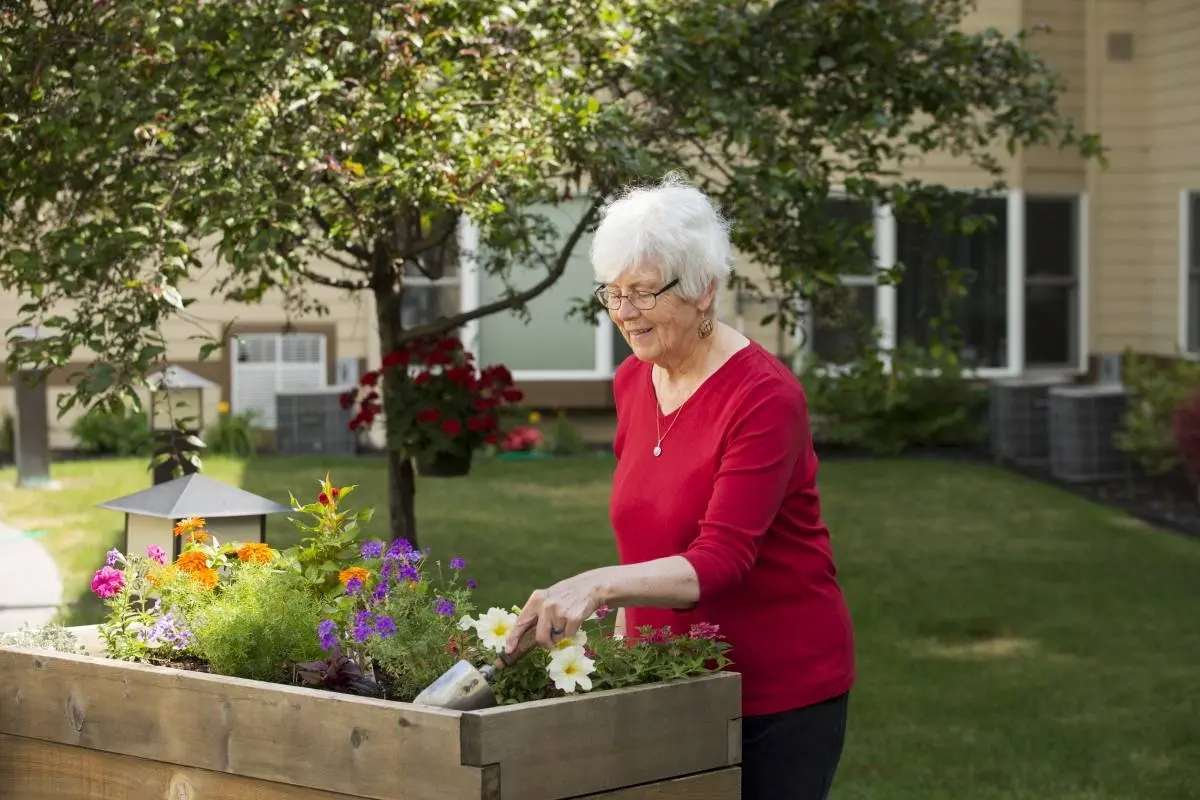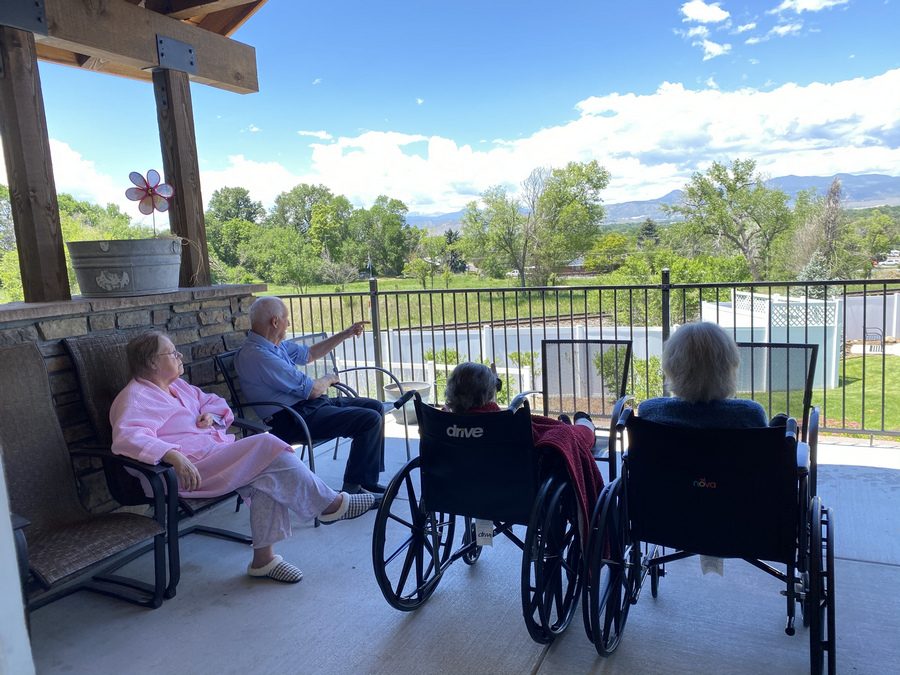Why Personalized Memory Care is Important for Alzheimer’s Support
Why Personalized Memory Care is Important for Alzheimer’s Support
Blog Article
All Concerning Memory Treatment Solutions: Why Small Memory Treatment Homes Are a Great Option
Memory care solutions play an important duty in sustaining people with Alzheimer's and dementia. Tiny memory care homes stand out for their tailored approach and intimate setting. With lower staff-to-resident ratios, these homes promote more powerful connections and customized care. Locals take advantage of improved social interactions and a secure atmosphere. As families discover choices, recognizing the one-of-a-kind benefits of tiny memory treatment homes ends up being essential. What aspects should be thought about when selecting the right home?
Recognizing Memory Care Services
While several might recognize with basic senior care options, recognizing memory care services is essential for families dealing with the challenges of cognitive decline. Memory treatment especially satisfies people with conditions such as Alzheimer's illness and other types of dementia. These services give a structured atmosphere that concentrates on enhancing the lifestyle for residents through specialized treatment and support.Memory treatment facilities are developed to guarantee safety and protection, typically featuring protected atmospheres to avoid roaming. Trained personnel are available all the time to help with everyday activities, medicine management, and personal treatment. Furthermore, memory care programs usually consist of cognitive excitement tasks, tailored to involve homeowners and advertise mental health. Family members can take advantage of understanding these solutions, as they allow informed decisions concerning their loved ones' care, making certain that their specific requirements and preferences are addressed in a caring and helpful manner.
The Advantages of Small Memory Care Residences
Tiny memory treatment homes use distinctive benefits that can greatly enhance the lifestyle for residents with cognitive impairments. One substantial advantage is the intimate setting, which enables individualized interactions among personnel and locals. This smaller setting promotes significant connections, reducing sensations of seclusion and stress and anxiety often experienced by people with memory issues.Additionally, the lower staff-to-resident proportion in tiny memory treatment homes allows caregivers to give more conscientious supervision and assistance. This method not only enhances safety but likewise advertises a complacency for the residents.Moreover, small memory care homes can adapt promptly to the special demands and choices of each homeowner, permitting an extra homelike atmosphere. Such an atmosphere can urge social involvement and engagement in activities, inevitably enhancing the everyday experiences of those coping with cognitive impairments.
Personalized Care Plans for Homeowners
Customized treatment plans are vital in memory care homes, as they deal with the special demands and preferences of each homeowner. These strategies start with detailed analyses performed by skilled specialists, who examine cognitive abilities, clinical history, and individual passions. This tailored strategy assurances that care is not only efficient however also considerate of each individual's dignity and autonomy.Moreover, customized treatment strategies are versatile, enabling modifications as citizens' demands evolve gradually. This flexibility cultivates a complacency and knowledge, which is essential for people living with memory obstacles. Caretakers are trained to implement these plans constantly, offering assistance that aligns with the locals' routines and preferences.Ultimately, individualized care plans enhance the lifestyle for homeowners by advertising freedom, health, and involvement, making them an essential aspect of memory treatment services in little memory care homes.
Producing a Home-Like Atmosphere
Producing a home-like setting is critical for promoting convenience and experience in memory care setups, as it significantly impacts locals' psychological well-being. Little memory care homes typically prioritize tailored touches, such as warm color palettes, family photos, and familiar furniture arrangements, which assist residents really feel more comfortable. Integrating components evocative a conventional home, like comfortable home and communal locations, encourages a feeling of belonging.Moreover, making use of all-natural light and outside rooms can enhance the environment, promoting relaxation and harmony. Team member play a substantial duty in keeping this atmosphere by engaging with residents in a thoughtful way, treating them like household. Regular tasks, such as food preparation or horticulture, can likewise add to a home-like feel, providing chances for residents to take part in purposeful experiences. Generally, developing a nurturing atmosphere sustains cognitive feature and emotional security, making it a vital facet of memory care solutions.
Enhanced Social Communication and Community
Boosted social communication and community are important parts of memory care services. By fostering customized social interaction and creating a family-like ambience, these solutions promote significant connections among locals. Team activities and events further motivate involvement, helping individuals really feel more consisted of and supported.
Individualized Social Interaction
While social communication is important for overall health, many individuals with memory impairments commonly struggle to engage meaningfully with others. Customized social interaction in memory care homes addresses this challenge by producing customized activities that provide to citizens' special rate of interests and capabilities. By concentrating on individual choices, caregivers can foster links that resonate deeply with everyone. Tasks such as art therapy, songs sessions, and assisted discussions advertise cognitive stimulation and emotional expression. In addition, little group settings motivate camaraderie and enable more intimate communications, improving sensations of belonging. This approach not only fights feelings of isolation however also encourages citizens try this web-site to keep a feeling of identity, eventually adding to enhanced psychological health and lifestyle.
Family-like Environment
In a memory care setting, fostering a family-like environment considerably boosts social interaction and develops a feeling of area among citizens. Smaller memory treatment homes usually prioritize intimate settings, allowing citizens to develop closer links with one an additional and team members. This nurturing atmosphere advertises count on, which is necessary for people with memory problems. Citizens are more most likely to talk and share experiences, producing a supportive network that minimizes sensations of isolation. The experience of common rooms and routines adds to a feeling of belonging, even more motivating social communication (personalized memory care). In such setups, psychological bonds grow, causing improved overall wellness and a better of life for locals as they browse their everyday experiences with each other
Group Activities and Occasions

Security and Protection Functions in Tiny Houses
Many tiny homes created for memory treatment include important safety and security and security features to assure the wellness of residents. These homes commonly make use of safe entry and departure indicate stop wandering, a common problem among people with memory problems. In addition, monitoring systems and alarm devices boost monitoring, guaranteeing that personnel can without delay react to any unusual activities.Interior formats are customized for safety and security, with decreased hazards such as sharp edges and clutter-free pathways. Handrails and non-slip flooring are normally set up visit site to reduce the threat of drops. Personnel participants are trained in emergency procedures, ensuring they are planned for different situations.Moreover, personalized treatment strategies may consist of evaluation of private safety needs, providing customized services for every local. Generally, these safety and security and protection features produce a caring atmosphere where residents can prosper while preserving their self-respect and freedom.
How to Select the Right Memory Treatment Home
How can families assure they select the most suitable memory treatment home for their enjoyed ones? The choice requires careful factor to consider of several elements. Initially, family members must review the facility's team credentials and training, making certain that caretakers are experienced in handling memory-related problems. Next, it's vital to examine the home's environment, concentrating on safety and security functions and whether it promotes a feeling of community and belonging. Going to the facility can give understanding right into daily tasks and the social ambience, which are essential for psychological excitement and emotional wellness. Additionally, households should ask concerning the care strategies provided, guaranteeing they are tailored to private requirements. Considering the home's location and ease of access for household brows through can add to a smoother shift. By addressing these facets, families can make an enlightened choice that prioritizes their enjoyed one's comfort and lifestyle in a memory treatment setup.
Regularly Asked Concerns
What Credentials Should Team Members in Memory Care Homes Have?
Employee in memory care homes should possess relevant qualifications, experience in dementia care, solid interaction skills, and compassion. Recurring training in behavior monitoring and therapeutic interventions improves their ability to sustain locals effectively.
How Do Memory Treatment Provider Differ From Standard Assisted Living?
Memory treatment solutions concentrate particularly on individuals with memory problems, supplying customized support and structured atmospheres. On the other hand, traditional assisted living provides general aid More about the author with everyday activities, doing not have the customized strategy required for those with cognitive challenges.
What Kinds of Activities Are Supplied in Memory Treatment Homes?
Memory treatment homes generally use a selection of activities developed to involve locals. Typical options include art therapy, music sessions, cognitive games, physical workouts, horticulture, and get-togethers, all targeted at boosting well-being and cognitive feature.
Can Locals Bring Their Own Belongings to Memory Treatment Residences?
Residents can generally bring their very own valuables to memory care homes, enabling them to individualize their home - personalized memory care. This method aids produce a familiar atmosphere, promoting comfort and a feeling of identity for the people

Exactly How Are Relative Associated With the Treatment Process?
Family participants play an essential function in the care process, commonly getting involved in decision-making, attending care meetings, and offering psychological support. Their involvement cultivates a joint environment, boosting the resident's general health and lifestyle. While numerous may be acquainted with general elderly care choices, understanding memory treatment services is crucial for family members facing the obstacles of cognitive decline. These services offer an organized environment that concentrates on boosting the quality of life for citizens through specialized care and support.Memory care centers are designed to ensure safety and safety and security, commonly including protected environments to prevent wandering. Individualized treatment strategies are important in memory treatment homes, as they cater to the special requirements and preferences of each citizen. Team participants in memory care homes ought to possess appropriate accreditations, experience in mental deterioration care, strong interaction skills, and empathy. Memory care solutions concentrate specifically on people with memory disabilities, giving specialized support and organized settings.
Report this page